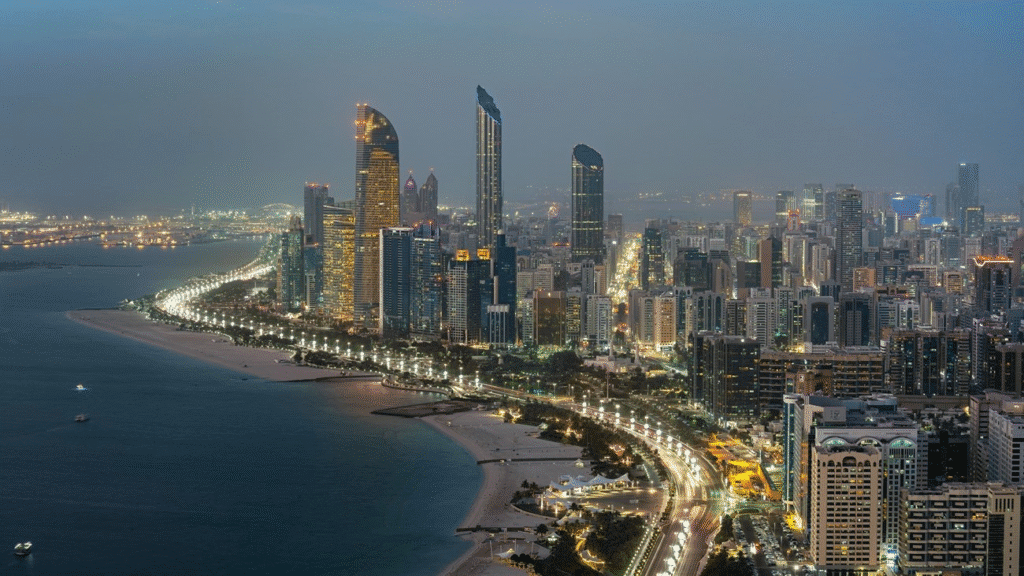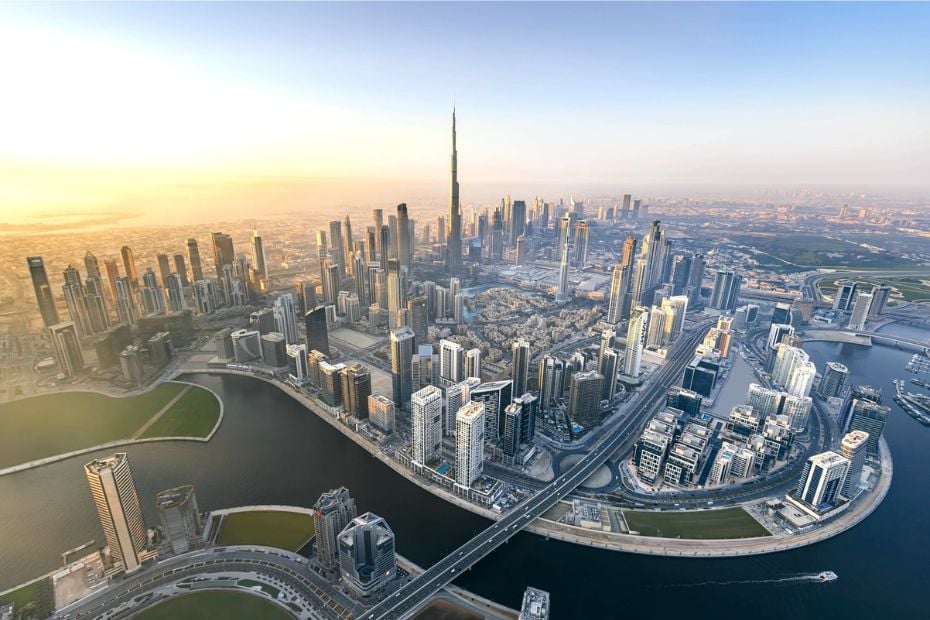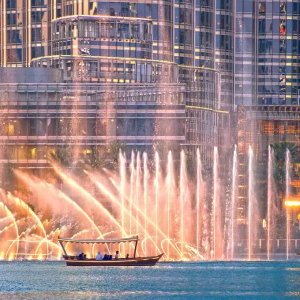The UAE economy is once again proving its strength and resilience, as the International Monetary Fund (IMF) projects an impressive 4.8% growth in 2025. This upbeat forecast places the country at the forefront of regional recovery and global economic momentum, with Abu Dhabi expected to lead the charge at a remarkable 6% growth rate. The figures underscore the UAE’s successful diversification strategy, visionary leadership, and thriving non-oil sectors.
A Strong Recovery Driven by Vision and Strategy
Over the past few years, the UAE has transitioned from post-pandemic recovery to a new phase of sustainable expansion. The IMF’s optimistic outlook reflects the country’s dynamic policy environment, continued investment in infrastructure, and focus on innovation-driven sectors.
The UAE government’s efforts to diversify away from oil dependency have played a crucial role in maintaining steady growth. From renewable energy projects and manufacturing to advanced technology and logistics, the UAE has built a balanced and resilient economic foundation.

Abu Dhabi, in particular, has emerged as a powerhouse of industrial development and financial strength. Its focus on clean energy, sustainable industries, and smart infrastructure has attracted global investors, reinforcing the emirate’s role as a regional leader in economic transformation.
Abu Dhabi’s 6% Growth: The Engine of UAE’s Progress
Abu Dhabi’s economy is expected to grow at a robust 6%, outpacing the national average and demonstrating the success of its forward-thinking strategies. The emirate’s economic vision, shaped by projects such as the industrial city expansions, sustainable energy initiatives, and major infrastructure investments, is paying off in a big way.

The expansion of ADNOC’s operations, the rapid development of the energy transition sector, and the government’s push for local manufacturing are among the main drivers of this growth. Abu Dhabi’s financial policies have also encouraged foreign investment, with global firms finding stability and opportunity within the emirate’s well-regulated economic landscape.
Furthermore, the continued investment in tourism, culture, and innovation has strengthened Abu Dhabi’s position as a leading global hub for business and lifestyle, making it a key contributor to the UAE’s overall success story.
Non-Oil Sector Takes the Spotlight
While oil revenues remain an important part of the UAE’s economic framework, the non-oil sector is increasingly becoming the star performer. The IMF’s report attributes much of the projected growth to non-oil activities such as trade, technology, tourism, logistics, and real estate.
Dubai, known for its global tourism appeal and strong service sector, continues to diversify its economy by focusing on innovation, digital transformation, and sustainability. Meanwhile, Sharjah and Ras Al Khaimah are boosting their manufacturing and logistics sectors, complementing the national strategy for balanced economic growth across all emirates.
This diversification is helping the UAE remain resilient against global economic uncertainties, including fluctuations in oil prices and shifting global trade dynamics.
Visionary Leadership and Policy Reforms Fuel Confidence
The UAE’s economic success cannot be separated from the government’s strategic reforms and proactive policymaking. Initiatives such as the “We the UAE 2031” vision, which aims to double the national economy within a decade, and the “Projects of the 50” initiative have laid a strong foundation for the country’s next phase of development.
Key reforms in business ownership laws, foreign investment regulations, and residency schemes have made the UAE one of the most attractive destinations for entrepreneurs, professionals, and global investors. The introduction of long-term Golden Visas and flexible work permits has helped attract top global talent, adding depth and diversity to the nation’s workforce.
The UAE Central Bank’s stable monetary policy and strong fiscal management have also played a vital role in supporting economic stability and growth, even during periods of global financial uncertainty.
Tourism, Real Estate, and Technology Drive Forward Momentum
The tourism sector continues to be a cornerstone of the UAE’s economic engine. With record visitor numbers expected across Dubai, Abu Dhabi, and other emirates, the hospitality and entertainment sectors are thriving. Iconic destinations, new cultural attractions, and global events like COP28 have boosted the UAE’s international appeal.
In parallel, the real estate market remains a significant contributor to growth. High demand for premium properties, strong investor confidence, and an influx of international buyers have fueled continuous expansion across both residential and commercial segments.
Technology, too, is shaping the UAE’s economic future. With major investments in artificial intelligence, smart cities, and digital infrastructure, the UAE is positioning itself as a global leader in tech-driven innovation. The launch of government-backed digital economy initiatives has opened doors for startups and multinational corporations alike to thrive in an environment designed for the future.
Abu Dhabi’s Industrial and Energy Expansion
The capital city’s growth story is largely rooted in its ambitious industrial and energy projects. ADNOC’s strategy to increase oil production capacity while simultaneously investing in renewable energy and carbon capture technology demonstrates Abu Dhabi’s balanced approach to sustainability and growth.
The establishment of major industrial zones such as Khalifa Industrial Zone Abu Dhabi (KIZAD) and the expansion of ports infrastructure have turned Abu Dhabi into a global logistics and manufacturing hub. This industrial transformation aligns with the UAE’s long-term goals to enhance domestic production and export capabilities, reducing reliance on imports and boosting self-sufficiency.

Global Recognition and Investor Confidence
The IMF’s projection reinforces the UAE’s status as one of the world’s most competitive and stable economies. International investors continue to view the UAE as a safe haven, supported by transparent governance, business-friendly regulations, and modern infrastructure.
Foreign direct investment (FDI) inflows have risen steadily, driven by confidence in the UAE’s legal system, robust banking sector, and geopolitical stability. The country’s AAA credit ratings and strong sovereign wealth funds further underscore its financial strength and resilience.
The Road Ahead: Sustainable and Inclusive Growth
As the UAE prepares for another decade of progress, sustainability and innovation remain at the heart of its economic vision. The country’s commitment to achieving net-zero emissions by 2050, coupled with massive investments in green technologies, is setting a global example for sustainable development.
Efforts to empower small and medium-sized enterprises (SMEs), support youth entrepreneurship, and increase female participation in the workforce are helping to create an inclusive economy that benefits all segments of society. The UAE’s leadership continues to emphasize long-term prosperity over short-term gains, ensuring that growth is both balanced and forward-looking.
Conclusion: A Future Defined by Confidence and Progress
The IMF’s projection of 4.8% economic growth for the UAE—and an even stronger 6% for Abu Dhabi—signals more than just impressive numbers. It reflects years of disciplined planning, effective policy implementation, and visionary leadership.
The UAE’s ability to balance tradition with innovation, stability with ambition, and oil wealth with diversification has turned it into a model for economic transformation. With the global spotlight firmly on its growth trajectory, the UAE stands poised to continue its remarkable journey as one of the most dynamic and resilient economies in the world.
Do follow UAE Stories on Instagram
Read Next – Italy Showcases Power and Innovation at UAE’s ADIPEC 2025












